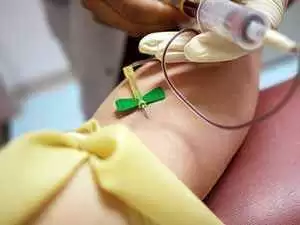Celiac.com 03/23/2015 - There's been a bit of ping-ponging going on about the status of non-celiac gluten sensitivity as a valid medical condition. Studies have yielded conflicting results, with some supporting, and others negating, the existence of non-celiac gluten-sensitivity.
 So what's the deal? Does non-celiac gluten sensitivity exist, or not? Researchers and clinicians continue to debate whether people without celiac disease or wheat allergy who consume gluten can experience intestinal and extra-intestinal symptoms attributable to non-celiac gluten sensitivity (NCGS).
So what's the deal? Does non-celiac gluten sensitivity exist, or not? Researchers and clinicians continue to debate whether people without celiac disease or wheat allergy who consume gluten can experience intestinal and extra-intestinal symptoms attributable to non-celiac gluten sensitivity (NCGS).
Celiac.com Sponsor (A12):
Taking the latest stab at the problem, a team of researchers recently conducted a randomized, double-blind, placebo-controlled, cross-over trial to determine the effects of administration of low doses of gluten to subjects with suspected NCGS. The research team included A. Di Sabatino, U. Volta, C. Salvatore, P. Biancheri, G. Caio, R. De Giorgio, M. Di Stefano, and G. R. Corazza. They are variously affiliated with the First Department of Internal Medicine at St Matteo Hospital Foundation at the University of Pavia in Pavia, Italy, and with the Department of Medical and Surgical Sciences at St Orsola-Malpighi Hospital at the University of Bologna in Bologna, Italy.
For their study, the team enrolled 61 adults without celiac disease or wheat allergy, but who believe that eating gluten-containing food to be causing of their intestinal and extra-intestinal symptoms. The team randomly assigned participants to groups that received either 4.375 g/day gluten or rice starch (placebo) for 1 week, each via gastro-soluble capsules. Study subjects spend one week on a gluten-free diet, and then switched groups.
The primary outcome was the change in overall (intestinal and extra-intestinal) symptoms, determined by established scoring systems, between gluten and placebo intake. A secondary outcome was the change in individual symptom scores between gluten vs placebo.
Per-protocol analysis of data from the 59 patients who completed the trial shows that intake of gluten significantly increased overall symptoms compared with placebo (P=.034). Among the intestinal symptoms, abdominal bloating (P=.040) and pain (P=.047) were significantly more severe when subjects received gluten than placebo. Among the extra-intestinal symptoms, foggy mind (P=.019), depression (P=.020), and aphthous stomatitis (P=.025) were also worse when subjects received gluten than placebo.
In this cross-over trial, subjects with suspected NCGS saw significantly more severe symptoms during 1 week of intake of small amounts of gluten, compared with placebo. So, at least for now, the NGCS ball seems to be back in the court that considers it a valid medical condition.
Source:
- Open Original Shared Link






Recommended Comments